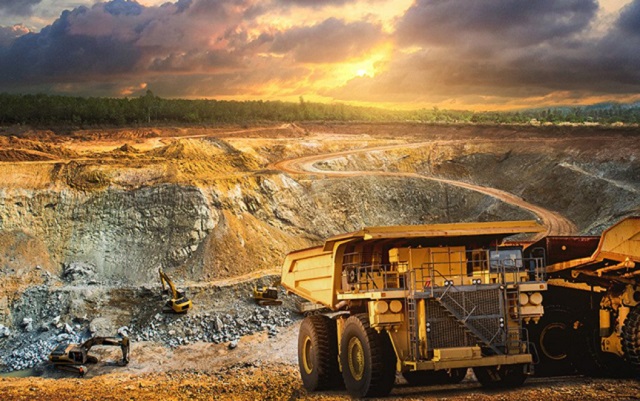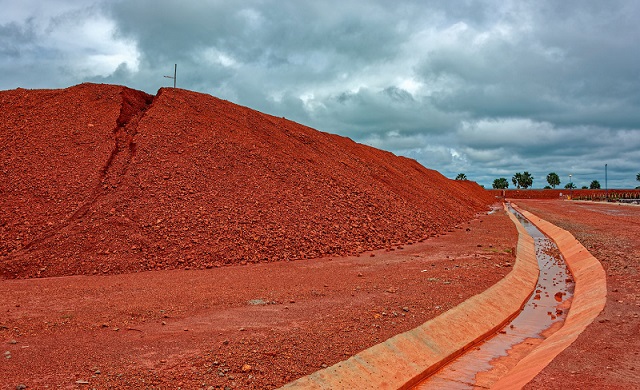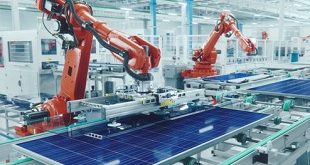
Experts say global energy transition will happen with or without Africa
Kampala, Uganda | RONALD MUSOKE | As the global shift towards a cleaner renewable energy order picks up pace, mining experts on the continent are rallying African governments to focus more on developing bankable mining projects if they are to reap from their vast critical mineral reserves.
The so-called critical minerals which include copper, uranium, aluminium, cobalt, graphite and lithium among others, have been tipped to be at the forefront in the development of renewable energy technologies such as solar panels, wind turbines, green hydrogen, electric vehicles (EVs), and battery storage.
The experts say many African countries which have high-grade deposits of these critical minerals are well-positioned to participate in the global shift towards renewables while promoting socio-economic growth, jobs and local content.
The International Energy Agency (IEA), a global organization that works with governments around the world to shape energy policies for a secure and sustainable future, notes that the demand for critical minerals is set to grow by about 500% over the next seven years.
In order to meet the expected rise in global demand, the IEA says production of these critical minerals will need to increase by nearly 500% by 2050. Already, the price of lithium which is used in electric vehicle batteries has risen by 500% according to the World Economic Forum.
“This is an opportunity for Africa,” said Livingstone Ssenyonga (PhD), a Senior Lecturer of Energy Economics at Makerere University Business School in Kampala, “But organizing the markets (restructuring, pricing and participation) that work sustainably will be important.”
Ssenyonga noted during a public dialogue organized by Oxfam in Kampala recently that the clamour for Africa’s critical minerals is set to bring a new set of economics in the sector. “The concentration of processing which at the moment is done in three countries; China, Qatar and the U.S will need to be addressed and harnessing the benefits from these critical minerals will also have to be addressed.”
Investing in value chains
Other mining experts on the continent say Africa should particularly invest in three crucial stages of the value chain.
“First, producing countries need to develop quality mining projects to meet increasing global demand by working closely with international mining houses,” Patrick Prestele, a management consultant at Frost and Sullivan Africa, said recently.
Prestele said Africa must be smart about its long-term position in the global value chain and take full advantage of emerging opportunities.
“These countries must further establish local refining capabilities by improving the business climate through policy harmonization and infrastructure security such as reliable power supply.”
“The continent (also) needs to muster end-to-end value chains by manufacturing products such as EV batteries, solar batteries, green aluminium and so forth,” he added. “There will be no energy transition without critical minerals but it will happen with or without Africa.”
Critical minerals key to a green energy future
In fact, some experts in the renewable energies sector say decarbonization of sectors such as heavy transport, heating, and industry will not be possible without the development of critical minerals, many of which are found in huge quantities across the continent.
For instance, more than 85% of most solar photovoltaic components which are used in most low-carbon technologies are made from aluminium – for which bauxite accounts roughly 98% of its primary production. And Africa is home to approximately one-third of global bauxite reserves, with Guinea-Conakry alone having accounted for over half of global aluminium ore exports in 2020.
Africa also accounts for over 80% (2020 data) of global chromium ore exports. This particular mineral accounts for over a third of the mineral demand for both geothermal and hydropower technologies and serves as a requisite material for the development of concentrated solar power (CSP). According to the International Energy Agency (IEA), chromium demand is expected to triple by 2030.
The IEA has also predicted that global demand for cobalt which has been tipped to be crucial in the global shift from fossil fuels-based technologies will rise six-fold by 2040. The vast majority of cobalt which is essential in the production of lithium-ion batteries used in EVs and energy storage technologies is located in the DR Congo and Zambia.
Zambia and DR Congo are also the world-leading producers of copper, which is used in renewable energy systems to generate power from solar, hydro, thermal, and wind energy. In 2021, the DR Congo mined the third largest amount of copper in the world while Zambia currently accounts for over 12% of global production.
Madagascar, Mozambique, and Tanzania account for over one-fifth of the world’s graphite reserves. Their combined reserves, experts say, will also. play a central role in the development of lithium-ion batteries.
Meanwhile, the continent also hosts vast deposits of the platinum group of metals (iridium, palladium, and platinum) which are used as a catalyst in proton exchange membrane fuel-cell technologies.
South Africa, which is one of the biggest producers of these particular minerals accounted for over 70% of global platinum production between 2016 and 2020, and over 80% of global iridium production, while Zimbabwe serves as the world’s third largest producer of platinum and second largest producer of iridium.
Manganese is the other critical mineral which occurs in several African countries including Ivory Coast, Gabon, Ghana and South Africa. Over 60% of the mineral occurs on the continent and the IEA predicts its demand will increase three-fold by 2030.
South Africa already accounts for 60% of the world’s manganese supply; 75% of platinum supply and 40% of palladium supply while Zimbabwe produced up to 15 metric tons of platinum alone in 2021. Namibia produced 12% of the world’s uranium supply in 2020.
Within the East African Community bloc, the seven-member countries also hold considerable deposits of critical minerals. Tanzania, Kenya, Uganda, Rwanda, South Sudan and Burundi hold varying volumes of copper, cobalt, columbite-tantalite (coltan), and lithium, among others.
G7 eyes Africa’s critical minerals
Last month, ministers of the G7 (the world’s top seven industrialized countries) alongside the International Energy Agency proposed a five-point “Action Plan for Critical Minerals Security.” The Group also charted a medium and long-term demand-supply outlook, with particular focus on increased recycling and sharing of capabilities, innovation in resource-sharing, and preparation for supply disruptions.

The plan also emphasizes the need for new mines and supply chains for critical minerals, presenting opportunities for African markets. The G7 Action Plan also presents a strategy for addressing supply chain challenges caused by the overreliance on a few producing countries.
“We reaffirm the growing importance of critical minerals for the clean energy transition and the need to prevent economic and security risks caused by vulnerable supply chains, monopolization and lack of diversification of existing suppliers of critical minerals,” the G7 Group said in a statement.
The plan will “boost the development of new mines and supply chains for critical minerals in a responsible manner that promotes transparency and traceability to meet the rising demand. We explore ways to cooperatively support the acquisition of critical minerals as competition for these scarce resources becomes more intense…”
Stiff competition
Some experts The Independent has spoken to for this story say the competition for access to Africa’s critical minerals is expected to grow exponentially in the coming decades as the world transitions to a low-carbon energy future, with the largest economies – China and the U.S. – already vying for strategic control over global critical mineral supply chains, placing Africa at the heart of the global energy transition.
Siragi Magara Luyima, the extractives industries coordinator at Oxfam-Uganda told The Independent on May 11 that he foresees a situation where wealthy countries like China and the U.S come to Africa to exploit these critical minerals cheaply and bulk them back home for future use.
This development, he said, could lead to a situation in the near future where Africa goes back to these same countries to buy the products of these minerals at exorbitant prices. “We might even access these products through expensive loans,” he told The Independent.
“As a continent, we have failed to understand the real value of these critical minerals and unless a mechanism is put in place that makes it hard for foreign companies to access these minerals cheaply, the continent might lose out again.”
In order to avoid such a scenario from happening, Magara wants the African Union and regional blocs like the East African Community to move fast and take hold of the situation. “The AU is taking baby steps but it must wake up from its slumber to mobilize resources to set up processing facilities across the value chain of these critical minerals.”
African Mining Vision
Don Bwesigye Binyina, a mineral and energy policy analyst based at the African Centre for Energy Policy (ACEMP) in Kampala, meanwhile, says the African continent must rally behind the African Mining Vision which was put in place 14 years by the African Union.
The Africa Mining Vision seeks to tackle the current paradox of great mineral wealth which exists side by side with pervasive poverty in most mineral rich African states. It seeks to “create a transparent, equitable and optional exploitation to support broad-based sustainable growth and socio-economic development.”
Ironically, few African countries have managed to harmonize their mining laws, policies and fiscal regimes with the continental vision, Binyina said.
He told The Independent on May 11 that the few states that have attempted to incorporate the African mining vision into their national laws and policies have only picked aspects that benefit them.
“By now, we should be having continental laws, policies and fiscal regimes that feed into regional economic blocs and individual states,” he said, “The fact that we are not doing that explains how unserious we are. We are so used to depending on the West for everything. If we are to develop these critical minerals, we need to do so as one bloc just like the EU, the U.S and China are already doing.”
He added: “The earlier Africa wakes up the better because history has shown that no mineral boom lasts forever.”
“I worry that we might miss out on the critical mineral economic boom if we don’t rally around the Africa Mining Vision,” he said, adding that he plans to front an idea that will see countries with critical minerals form some sort of cartel similar to the oil producing countries under their umbrella body, Organization of Oil Exporting Countries (OPEC).
Continental critical minerals summit
With the clamour for the critical minerals not showing any signs of slowing down, a summit to discuss the future of these resource is scheduled to take place in Johannesburg, South Africa, later this year. Several deals are expected to be signed that will help diversify global supply chains. But the meeting is also expected to address some of the challenges that are starting to manifest in the sector.
Speaking recently at the launch of the Summit scheduled for this November, James Chester, the Senior Director at Energy Capital and Power, a Cape Town-based continental energy consultancy, said “Africa’s resources are vital to the world’s future clean growth and what we do with these resources will define the future prospects of mining companies and economies in SADC and across Africa.”
At the same meeting, Haddison Etchou, the Corporate Finance & Tax Professional at IBC Consultancy hinted on the many opportunities for the private sector across Africa’s mining and energy industries.
“The growth in the mining and energy sector which is associated with the energy transition presents an opportunity for the private sector to accelerate industry participation. African economies can only move forward if the private sector is fully engaged,” he said.
“We see the African Critical Minerals Summit as a platform which will enable us to see how we can benefit from investments in Africa as well as what we can offer the African market. We are looking for business ventures.”
Etchou said Africa is rich with critical minerals which are essential for a secure supply of raw materials required for a just and inclusive energy transition across the globe.
“The monetization of these minerals will help Africa drive its economic expansion and socioeconomic developments. However, the role of the industries depends on how best Africa will manage its resources to add value in local economies,” Etchou said, adding that there’s an urgent need to adopt investor friendly and transparent policies which will enable the private sector to want to invest.
 The Independent Uganda: You get the Truth we Pay the Price
The Independent Uganda: You get the Truth we Pay the Price


